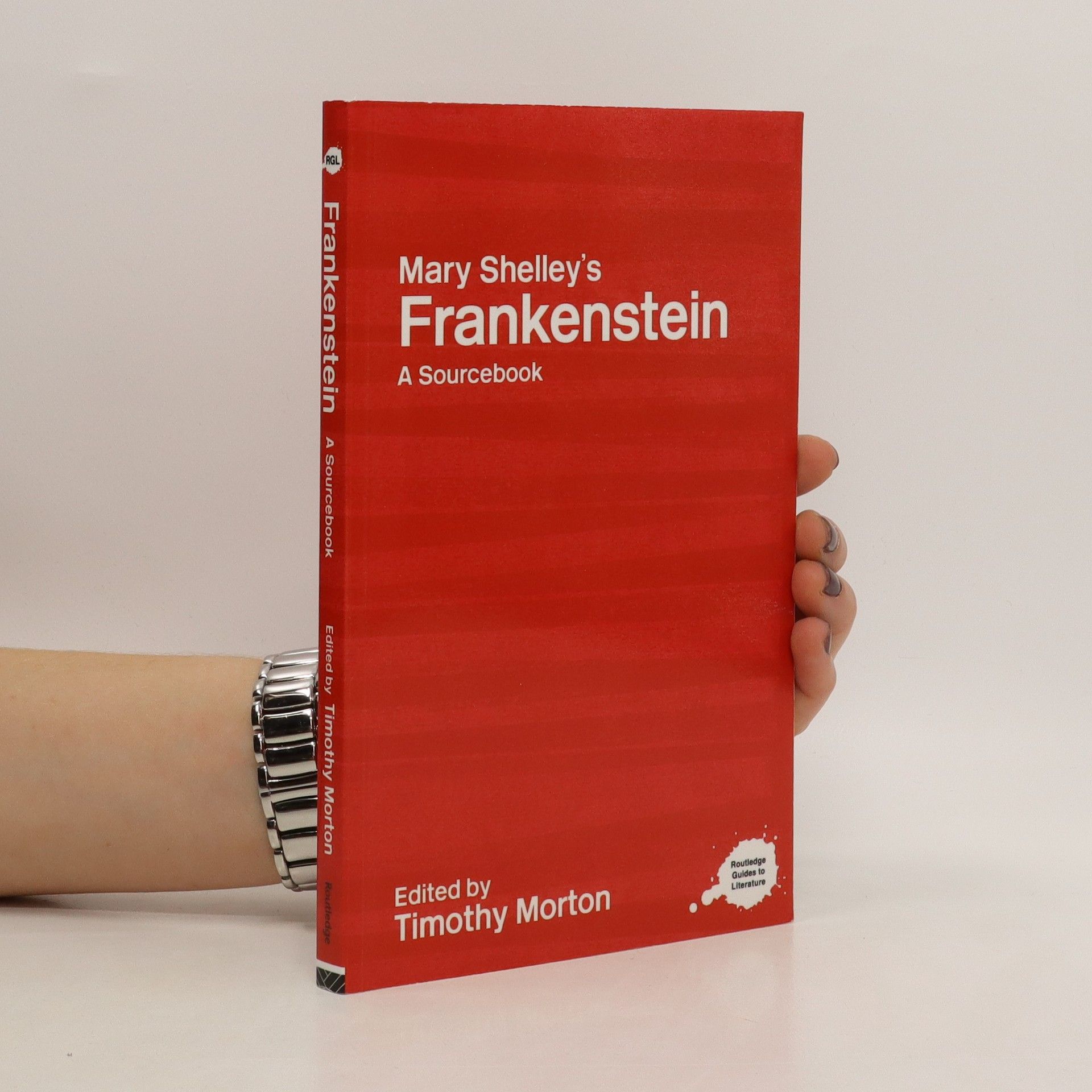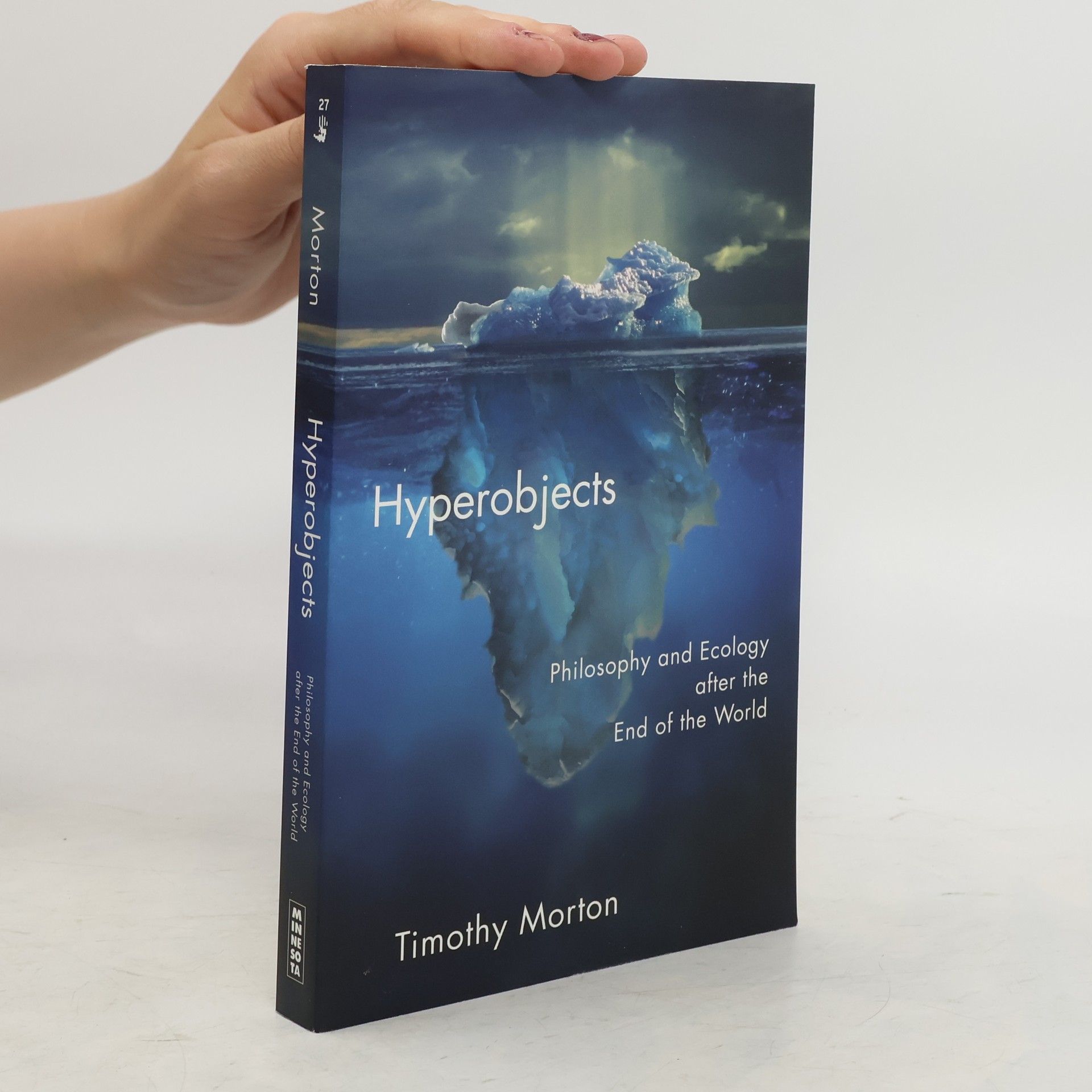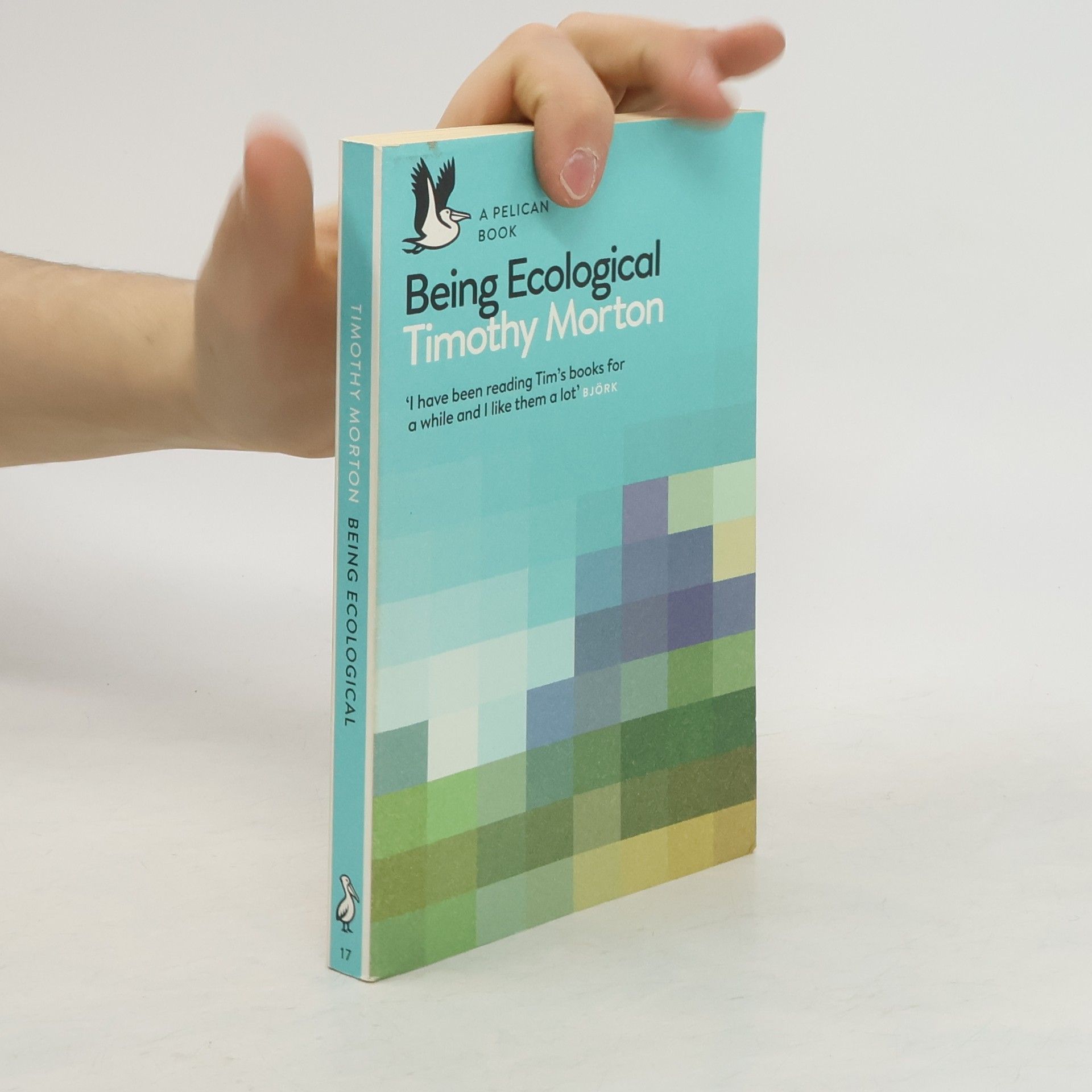This study offers a unique exploration of Shelley's ideas, connecting them to themes of diet, consumption, and the human body within the context of nature and culture. It delves into how these elements intersect with Shelley's philosophy, providing fresh insights into his work and its relevance to contemporary discussions on these topics.
Timothy Morton Boeken
Timothy Morton is een vooraanstaande denker wiens werk zich bezighoudt met de complexe relatie tussen mensheid en ecologie in de hedendaagse wereld. Zijn schrijven, vaak provocerend en diep filosofisch, verkent concepten als hyperobjecten en donkere ecologie om onze huidige bestaan te herformuleren. Mortons analyse daagt ons uit om onze plaats binnen het ecosysteem te overwegen en nieuwe manieren te vinden om te co-existeren met de wereld om ons heen. Zijn innovatieve benadering van de ecologische crisis biedt lezers nieuwe perspectieven en aanzetten tot diepere reflectie.







The narrative revolves around the profound connection between a seemingly ordinary old teapot and the memories it evokes. Through its daily use, the teapot serves as a vessel for nostalgia, revealing more about the narrator's past than any written record. This exploration highlights themes of memory, the significance of everyday objects, and the stories they carry, inviting readers to reflect on their own experiences and the tangible links to their history.
Being Ecological, with a New Preface by the Author
- 224bladzijden
- 8 uur lezen
Focusing on ecology, this guide offers a refreshing perspective that avoids overwhelming readers with information or inducing guilt. It aims to engage a broad audience without preaching to those already aware of environmental issues. The new edition presents accessible insights into ecological challenges, making it a valuable resource for anyone looking to understand and engage with environmental topics meaningfully.
Mary Shelley's Frankenstein : a sourcebook
- 220bladzijden
- 8 uur lezen
Mary Shelley's Frankenstein is one of the most widely studied works of English literature, and Frankenstein's creature is a key figure in the popular imagination.This sourcebook examines Mary Shelley's novel within its literary and cultural contexts, bringing together material *the contexts from which Frankenstein emerged*the novel's early reception*adaptation and performance of the work (from theatre to pop music)*recent criticism.All documents are discussed and explained. The volume also includes offers carefully annotated key passages from the novel itself and concludes with a list of recommended editions and further reading, to allow readers to pursue their study in the areas that interest them most. This sourcebook provides an ideal orientation to the novel, its reception history and the critical material that surrounds it.
The Ecological Thought
- 184bladzijden
- 7 uur lezen
Argues that various forms of life are connected in a vast, entangling mesh and this interconnectedness penetrates different dimensions of life. This title investigates the profound philosophical, political, and aesthetic implications of the fact that these life forms are interconnected.
Humankind
- 224bladzijden
- 8 uur lezen
A radical call for solidarity between humans and non-humans
Hyperobjects
- 240bladzijden
- 9 uur lezen
A Quake in Being: An Introduction to Hyperobjects Part I. What Are Hyperobjects? Viscosity Nonlocality Temporal Undulation Phasing Interobjectivity Part II. The Time of Hyperobjects The End of the World Hypocrisies The Age of Asymmetry.
Dark Ecology
- 208bladzijden
- 8 uur lezen
Morton commands readers' attention with his free-form style.... (Dark Ecology) extends his previous work to offer a seismically different vision of the future of ecology and humankind. Publishers Weekly
Being Ecological
- 240bladzijden
- 9 uur lezen
'To read Being Ecological is to be caught up in a brilliant display of intellectual pyrotechnics' P.D.Smith, Guardian Why is everything we think we know about ecology wrong? Is there really any difference between 'humans' and 'nature'? Does this mean we even have a future? Don't care about ecology? This book is for you. Timothy Morton, who has been called 'Our most popular guide to the new epoch' (Guardian), sets out to show us that whether we know it or not, we already have the capacity and the will to change the way we understand the place of humans in the world, and our very understanding of the term 'ecology'. A cross-disciplinarian who has collaborated with everyone from Björk to Hans Ulrich Obrist, Morton is also a member of the object-oriented philosophy movement, a group of forward-looking thinkers who are grappling with modern-day notions of subjectivity and objectivity, while also offering fascinating new understandings of Heidegger and Kant. Calling the volume a book containing 'no ecological facts', Morton confronts the 'information dump' fatigue of the digital age, and offers an invigorated approach to creating a liveable future.
In twenty short books, Penguin brings you the classics of the environmental movement. Provocative and playful, All Art is Ecological explores the strangeness of living in an age of mass extinction, and shows us that emotions and experience are the basis for a deep philosophical engagement with ecology. Over the past 75 years, a new canon has emerged. As life on Earth has become irrevocably altered by humans, visionary thinkers around the world have raised their voices to defend the planet, and affirm our place at the heart of its restoration. Their words have endured through the decades, becoming the classics of a movement. Together, these books show the richness of environmental thought, and point the way to a fairer, saner, greener world.

